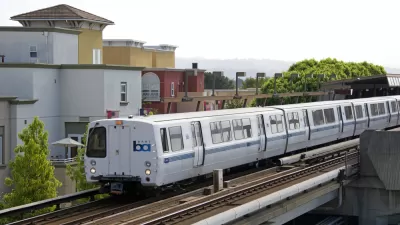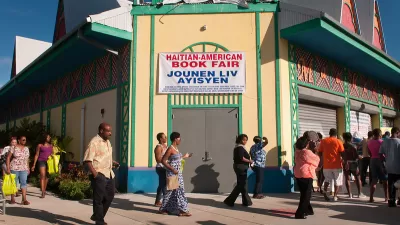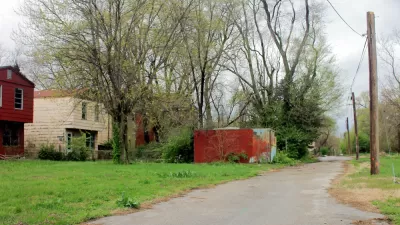Recent analysis identifies nearly 200 U.S. neighborhoods that have achieved the highly-sought-after goal of increasing the prosperity of residents without displacing the existing community.

Nearly 200 U.S. neighborhoods defined by concentrated poverty have reduced poverty without displacing current residents—showing that investments in neighborhoods are possible without causing displacement.
The findings come from the “Reducing poverty without community displacement: Indicators of inclusive prosperity in U.S. neighborhoods” report written by Rohit Acharya and Rhett Morris for the Brooking Institution. Other key findings from the report include evidence of inclusive prosperity as a hallmark of these neighborhoods: better-than-the-national-average retention of local residents alongside increasing property values and small business activity.
The research findings greatly expand the number of case studies available of low-income neighborhoods allowing investment without displacing the community. Fear of gentrification is often cited as a reason for opposing investment in vulnerable communities—but these findings suggest that investment without displacement is possible.
The report also identified eight indicators of neighborhoods achieving inclusive prosperity. External indicators, from the environment around the neighborhood, include positive economic growth, lower homicide rates, and low risk of displacement. Five internal indicators, which show the prosperity of residents within the neighborhood, include higher rates of homeownership, lower residential vacancy, increased housing density, greater self-employment, and the presence of community organizations.
Previous Planetizen coverage of the connection between increased levels of investment and displacement:
- Is Urban Revitalization Possible Without Displacement and Gentrification? (June 2014)
- The False Choice in the Gentrification Debate (October 2014)
- Surveying the Academic Findings about Gentrification and Displacement (September 2015)
- Researchers Find a Model of Redevelopment Without Displacement (April 2018)
- Watch: 'Revitalization Without Gentrification' (May 2019)
- Revitalization Without Displacement: A New Model From Miami (October 2020)
- Who’s Afraid of Gentrification? (June 2022)
FULL STORY: Reducing poverty without community displacement: Indicators of inclusive prosperity in U.S. neighborhoods

Maui's Vacation Rental Debate Turns Ugly
Verbal attacks, misinformation campaigns and fistfights plague a high-stakes debate to convert thousands of vacation rentals into long-term housing.

Planetizen Federal Action Tracker
A weekly monitor of how Trump’s orders and actions are impacting planners and planning in America.

In Urban Planning, AI Prompting Could be the New Design Thinking
Creativity has long been key to great urban design. What if we see AI as our new creative partner?

Cal Fire Chatbot Fails to Answer Basic Questions
An AI chatbot designed to provide information about wildfires can’t answer questions about evacuation orders, among other problems.

What Happens if Trump Kills Section 8?
The Trump admin aims to slash federal rental aid by nearly half and shift distribution to states. Experts warn this could spike homelessness and destabilize communities nationwide.

Sean Duffy Targets Rainbow Crosswalks in Road Safety Efforts
Despite evidence that colorful crosswalks actually improve intersection safety — and the lack of almost any crosswalks at all on the nation’s most dangerous arterial roads — U.S. Transportation Secretary Duffy is calling on states to remove them.
Urban Design for Planners 1: Software Tools
This six-course series explores essential urban design concepts using open source software and equips planners with the tools they need to participate fully in the urban design process.
Planning for Universal Design
Learn the tools for implementing Universal Design in planning regulations.
Appalachian Highlands Housing Partners
Gallatin County Department of Planning & Community Development
Heyer Gruel & Associates PA
Mpact (founded as Rail~Volution)
City of Camden Redevelopment Agency
City of Astoria
City of Portland
City of Laramie





























